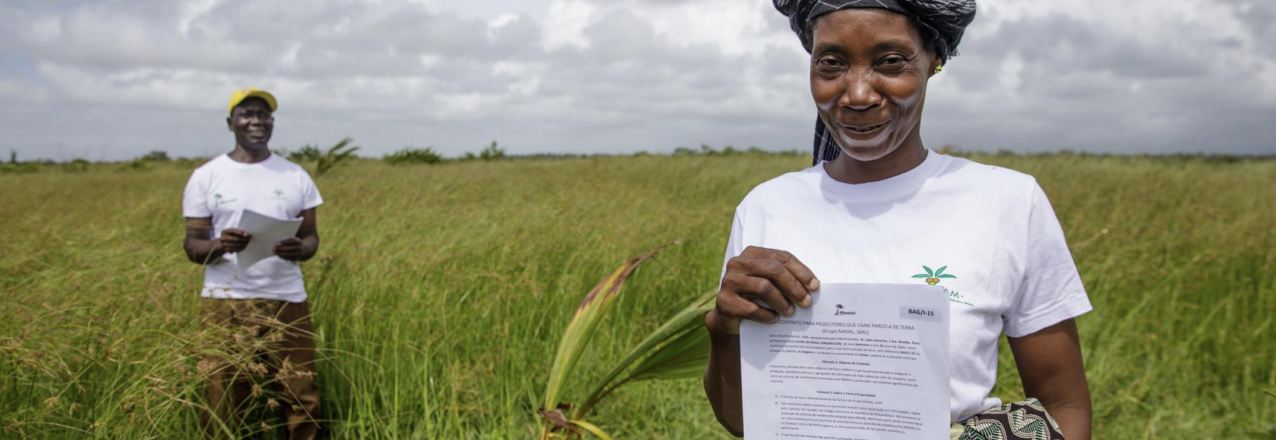USAID is leading the way to strengthen land and property rights and promote sound resource governance to achieve inclusive, sustainable development outcomes.
Around the world millions of people, communities, and businesses lack clear and secure rights over land, resources, and property needed for economic development and maintaining community stability. Nearly one billion people around the world live in fear of being forced out of their home or land.1 Insecure land and resource rights present a fundamental barrier for overcoming many of today’s most pressing challenges: poverty, hunger, conflict, poor governance, and lack of economic opportunity. These challenges are made worse by forces such as climate change and displacement. Women, youth, Indigenous Peoples, and marginalized populations are especially vulnerable as they own and control less land, which limits their participation in decision-making at all levels.
USAID is collaborating with partner governments, civil society, the private sector, and other donors to improve land and resource governance and strengthen property rights around the world.


